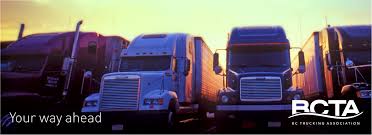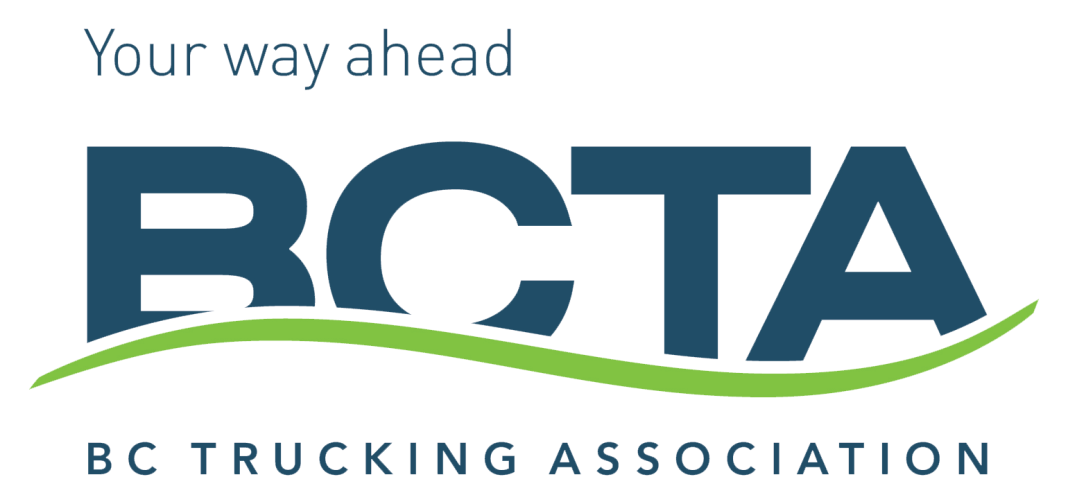By: the BC Trucking Association
As the global push for sustainability continues to grow, Canada’s commercial trucking industry finds itself at a critical turning point. With medium- and heavy-duty vehicles contributing 27% of transportation-related greenhouse gas (GHG) emissions in Canada, the transition to alternative fuels is both an environmental imperative and an economic opportunity.[1]
National Initiatives and Emerging Technologies
The Canadian government acknowledges the trucking sector’s vital role in meeting climate goals. To address this, Transport Canada introduced the Zero-Emission Trucking Program (ZETP), which allocates $75.8 million over five years, beginning in 2022/23, to accelerate the adoption of medium- and heavy-duty zero-emission vehicles (MHZEVs). This program focuses on the research, development, and deployment of clean technologies and aims to modernize training, codes, and standards across provinces. More about the program’s activities and a report on battery technologies for electric long-haul trucks can be found on their website, along with a meta-analysis of trucking routes in Canada to specify vehicle technology requirements.[2]
Hydrogen fuel-cell hybrid trucks (FCHTs) represent a transformative leap for Canadian commercial trucking, especially in British Columbia, where geography, climate, and freight patterns demand versatility, extended range, and rapid refueling.
Fuel-cell trucks generate electricity on board by combining hydrogen with oxygen in a proton exchange membrane (PEM) stack. This reaction produces only water vapor, resulting in zero tailpipe emissions. These fuel cell electric vehicles (FCEVs) also typically achieve twice the efficiency of internal combustion engines, conserving energy while enhancing performance. This makes them especially suitable for heavy-duty long-haul freight routes. Additionally, FCHTs maintain consistent power in cold weather – a crucial advantage with BC’s topography.[3]
Compressed Natural Gas (CNG) and liquefied natural gas (LNG), renewable and conventional, are other promising alternatives. CNG, which is methane compressed to about 1% of its atmospheric volume, is attractive to trucking fleets due to its cleaner combustion profile and commercial viability. Compared to diesel, CNG offers:
- Up to 30% lower greenhouse gas emissions, 95% fewer nitrogen oxides, and virtually zero particulate matter emissions[4]
- Fuel cost savings of up to 50%, when compared on an energy-equivalent basis to diesel[5]
- Lower maintenance costs, as CNG engines bypass costly diesel after-treatment systems like diesel particulate filters and selective catalytic reduction catalysts4

LNG, which is methane chilled to a liquid state to increase energy density, provides a high-capacity alternative to CNG. Trucks powered by LNG allow for extended range and are suitable for heavier-duty cycles, making them ideal for long-haul or heavy-load applications – particularly in regions like BC that combine mountainous terrain with long distances. Compared to diesel, LNG:
- Reduces GHG emissions by roughly 25%
- Lowers nitrogen oxide emissions by 85%
- Nearly eliminates sulphur oxide and particulate emissions[6]
Alternative fuel trucks, including hydrogen, LNG and CNG, benefit from higher allowable gross weight limits – up to 65,000 kg – thereby reducing operational constraints for fleet operators and promoting low-carbon alternatives to diesel trucks.[7]
British Columbia: A Leader in Sustainable Trucking
British Columbia has emerged as a frontrunner in adopting alternative fuels within the trucking industry. The province’s plan sets ambitious targets, including a 20% low-carbon fuel standard and building up BC’s capacity to produce at least 1.5 billion litres of renewable fuel annually by 2030. Approximately 30% of the anticipated emission reductions are expected to come from cleaner transportation initiatives.[8]
Hydrogen is emerging as a crucial player in the transition to a sustainable energy future. BC Trucking Association member, HTEC, is at the forefront of this shift, spearheading initiatives like the H2 Gateway Program to drive forward Canada’s hydrogen economy. Announced in June 2024, this initiative will:
- Deploy 100 hydrogen fuel-cell heavy-duty trucks across the province
- Build up to 20 new refueling stations (18 in BC)
- Support three hydrogen production facilities in Burnaby, Nanaimo, and Prince George, plus a liquefaction plant in North Vancouver processing up to 15 tonnes of by-product hydrogen per day.

These trucks are projected to reduce GHG emissions by up to 92% relative to diesel when using low-carbon BC sourced‑ hydrogen.[9] Currently, HTEC operates five hydrogen stations in the Metro Vancouver/Vancouver Island region and plans to scale that network to 14 heavy-duty stations across BC.[10]
Natural gas (renewable and conventional) also offers immediate reductions in GHG emissions and fuel costs. A joint initiative by Tourmaline Oil Corp. and Clean Energy Fuels Corp. aims to construct up to 20 CNG stations across Western Canada, including Kamloops and Fort St. John in BC. This $70 million investment seeks to facilitate the transition of heavy-duty trucks to CNG, providing a lower-emission option for fleets.[11]
FortisBC is actively designing, constructing, and commissioning both CNG and LNG fueling stations across BC, tailored specifically for commercial fleets. They are currently planning to expand their Tilbury LNG Facility to meet rising demand. The proposed project includes a $400 million expansion to enhance liquefaction capacity and triple the current storage capacity. If approved, construction is expected to start as early as 2026.[12] The company has also invested millions in vehicle rebates and incentives, providing nearly $2.3 million in capital incentives in one year to support LNG and CNG adoption among fleets across BC. 14 Through its Clean Growth Innovation Fund, FortisBC invests in low- and zero-carbon gas projects, including research to integrate hydrogen and renewable natural gas (RNG) into its system. As of July 1, 2024, they became the first North American utility to automatically blend 1% RNG into the gas system, with plans to increase the RNG content over time to support deeper emissions reductions.[13]
Across the province, over 900 natural gas vehicles – both LNG and CNG – are used by carriers, including BC Trucking Association members Arrow Transportation, ColdStar Solutions, Denwill Enterprises, GFL Environmental, Ken Johnson Trucking, McRae’s Environmental Services, and Sutco Transportation, to name a few.[14],[15]
Operational Realities & Challenges
Despite compelling climate and cost advantages, the commercial trucking in Canada, particularly British Columbia, faces considerable challenges in moving away from diesel fuel:
- High capital costs & total cost of ownership: Zero-emission technologies, such as battery-electric and hydrogen fuel-cell trucks, often have price tags that are four to eight times higher than conventional diesel vehicles. While operational savings may help offset some of these initial costs, achieving cost parity remains difficult, notably due to current hydrogen prices.
- Insufficient infrastructure & “chicken-and-egg” effects: The lack of hydrogen refueling stations and limited CNG/LNG dispensing locations, often restricted to captive facilities, creates significant barriers to adoption. Fleet operators are reluctant to switch to alternative fuels without reliable fueling infrastructure, while infrastructure developers are hesitant to build without a demonstrated demand from fleets. This gap in infrastructure severely limits the ability to scale up alternative fuel use.
- Payload, range, and vehicle design constraints: Both hydrogen and CNG/LNG systems require specialized high-pressure or cryogenic tanks, which can add weight, occupy space, or reduce cargo capacity. Additionally, battery-electric trucks face challenges related to range and weight, which can compromise freight capacity and operational efficiency, especially on British Columbia’s mountainous routes.
Transitioning to alternative fuels in Canada’s commercial trucking sector presents both a complex challenge and a significant opportunity. British Columbia’s proactive approach, highlighted by substantial investments and innovative projects, positions the province as a leader in sustainable transportation. However, addressing industry concerns, ensuring infrastructure readiness, and supporting local producers are crucial for a successful transition.
As the BC Trucking Association continues to advocate for practical and effective solutions, collaboration between government, industry stakeholders, and innovators will be crucial in driving the sector toward a cleaner and more sustainable future.
[1]https://tc.canada.ca/en/binder/43-incentives-medium-heavy-duty-zero-emission-vehicles-program-imhzev
[2] https://tc.canada.ca/en/road-transportation/innovative-technologies/zero-emission-vehicles/zero-emission-trucking-program
[3] https://natural-resources.canada.ca/energy-sources/clean-fuels/hydrogen-canada
[4] https://www.fortisbc.com/services/lower-carbon-transportation/reference-guide-for-dealerships
[5] https://www.cleanenergyfuels.com/press-room/tourmaline-and-clean-energy-announce-70-million-jointdevelopment-agreement-to-build-cng-stations-in-western-canada
[6] https://www.biv.com/sponsored/using-bcs-lng-ship-fuel-can-reduce-global-emissions-8255810
[7] https://news.gov.bc.ca/releases/2021TRAN0035-000920
[8] https://www2.gov.bc.ca/gov/content/industry/electricity-alternative-energy/powering-our-future
[9] hhttps://www.htec.ca/100-fuel-cell-electric-trucks-a-reality-for-bc-through-htecs-h2-gateway-program
[10] https://www.htec.ca/h2gateway/
[11] https://www.cga.ca/energy-magazine-post/revolutionizing-western-canadas-trucking-industry-with-cng-stations
[12] https://talkingenergy.ca/project/tilbury-phase-2-lng-expansion-project?tab=overview-tab
[13] https://www.fortisbc.com/services/sustainable-energy-options/renewable-natural-gas
[14] https://en.wikipedia.org/wiki/Natural_gas_in_Canada
[15] https://www.newswire.ca/news-releases/thirteen-transportation-organizations-in-bc-hit-the-brakes-on-diesel-shift-to-natural-gas-829360532.html


